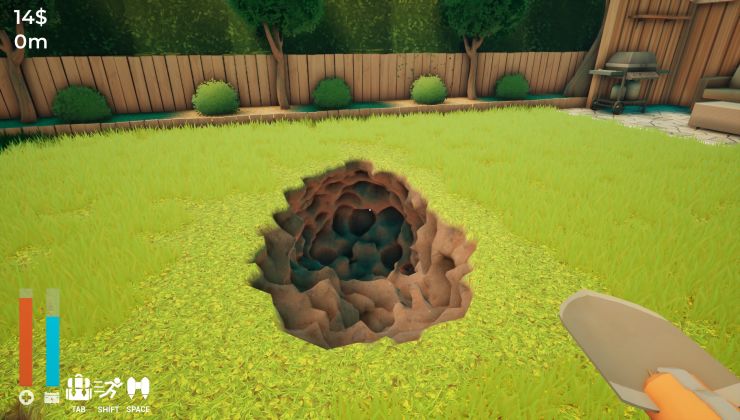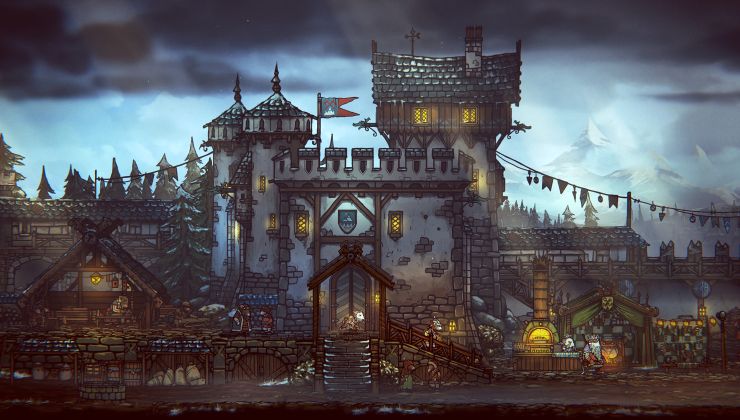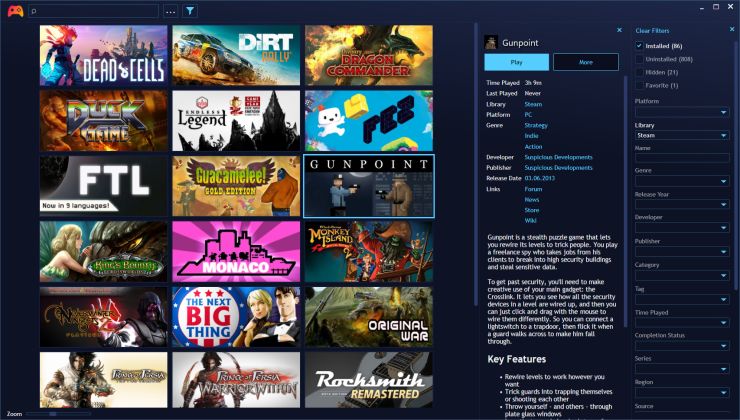Are you interested in helping to make Linux a great end-user platform? Or perhaps you just want to listen to speeches and find out more info from those working on it? Mark November 12-14 on your calendar.
This is the date of the upcoming 2020 Linux App Summit, an event co-hosted by GNOME and KDE as they work to bring everyone together to push Linux further. LAS will have a range of different talks, panels, and Q&As on a wide range of topics covering everything: creating, packaging, and distributing apps, to monetization within the Linux ecosystem and much more.
Recently they announced that the call for Talks is now open, so you can submit your ideas by September 15. They're encouraging new speakers, so you don't need to have done lots before. If you have a good idea, you should go for it and they have some suggested topics too like growing the ecosystem, platform diversity (technology speaking like helping to enabling cross-platform distribution), innovation and more.
Picked speakers will be announced on October 1.
We shall hopefully follow the event along to report on anything interesting in November. They also appear to be looking for sponsors to come up.
Tenchically the windows linker is significantly more fragile.
They solved muti-versioning by namespacing all the symbols.
Whilst that works, it significantly reduces the ability to just test to see if a different version of library X works better than the original one.
Which usually end up on some obscure command line (so modern...Speaking as someone who generally avoids the command line, when it comes to troubleshooting I prefer it. It's a lot easier to follow instructions to do command line stuff than to do GUI stuff, and it tends to be a lot less subject to change between versions. And it's more powerful for that kind of thing. So to me, the Windows tendency for troubleshooting instructions to be based on doing some weird tucked away GUI thing is a weakness rather than a strength.)
Which usually end up on some obscure command line (so modern...Speaking as someone who generally avoids the command line, when it comes to troubleshooting I prefer it. It's a lot easier to follow instructions to do command line stuff than to do GUI stuff, and it tends to be a lot less subject to change between versions. And it's more powerful for that kind of thing. So to me, the Windows tendency for troubleshooting instructions to be based on doing some weird tucked away GUI thing is a weakness rather than a strength.)
We'll have to agree to disagree on that one
There is no real fragmentation in the Windows ecosystem because you don't have a choice.There is fragmentation in Windows 10 now, thanks to their build / update system.
Tenchically the windows linker is significantly more fragile.
They solved muti-versioning by namespacing all the symbols.
Whilst that works, it significantly reduces the ability to just test to see if a different version of library X works better than the original one.
You now have release.build. if you are running 2004.#### then you can run WSL2, if you have 1909.##49 versions higher than work allows me to run, then Microsoft has backported the WSL2 stuff...
Oh, and if you don't have a specific build or later, if you have certain virtualization features enabled, you can't run VMWare workstation...
While this is a very particular example, it does show that there can be incompatible issues within Windows 10, as they are basically now doing what MacOS X did for many years, just doing small changes, but big enough to cause issues.
Last edited by slaapliedje on 27 Aug 2020 at 1:33 am UTC
Host hardware can only run a single VM platform at a time. You can't run ESXI alongside KVM, HyperV, or any other virtualization hosts. Enabling low level virtualization on any host is mutually exclusive with other hosts. That's true regardless of the OS. So it makes sense if you enable HyperV you can't run KVM for example. It's been that way for a really long time. This isn't a Windows 10 thing or even a Microsoft thing. Virtual Hosts/OSs want full control of all the hardware. If you enable WSL2 you're running both Win10 along with the Linux distro in HyperV. That is why you can't run VMWare workstation or KVM/Virtualbox on Windows 10 with WSL 2 enabled.There is no real fragmentation in the Windows ecosystem because you don't have a choice.There is fragmentation in Windows 10 now, thanks to their build / update system.
Tenchically the windows linker is significantly more fragile.
They solved muti-versioning by namespacing all the symbols.
Whilst that works, it significantly reduces the ability to just test to see if a different version of library X works better than the original one.
You now have release.build. if you are running 2004.#### then you can run WSL2, if you have 1909.##49 versions higher than work allows me to run, then Microsoft has backported the WSL2 stuff...
Oh, and if you don't have a specific build or later, if you have certain virtualization features enabled, you can't run VMWare workstation...
While this is a very particular example, it does show that there can be incompatible issues within Windows 10, as they are basically now doing what MacOS X did for many years, just doing small changes, but big enough to cause issues.
Besides, that isn't even what my point originally was. My point on fragmentation had to do with developers trying to write distro agnostic programs (games) for Linux natively and being frustrated by our ecosystem. It didn't have anything to do with VM hosts being mutually exclusive.
By the way SuperGiant won't be making a Linux port of its upcoming game Hades. They heard community reports that it works good enough on Proton and they hope that works out well for us. I wonder if it's just our anemic marketshare. Or maybe it's stuff like the Steam Linux Runtime based on Ubuntu still using an ancient version of GCC that breaks on modern OSs. Regardless of the reason, the end result is we've lost another Linux friendly developer for the time being. I can't help but think we create our own special hell for ourselves by loudly clamoring for Linux support and then driving developers away with low sales and a frustrating development experience.
Last edited by randyl on 27 Aug 2020 at 9:32 am UTC
I think you may be confusing the issues here.
There is distinctly different "fragmentations" being spoken of here:
1) Fragmentation of the administative environment. Debian/RH/Gentoo/Arch bases all administrate very differently. This fragmentation is being felt, but RPM/APT and Portage/Packman solve different problems. So we actually need much of this.
2) Fragmentation of the app environment. Other than having to load styles seperately for GTK/Qt, we don't really care here. An app built for Gnome/Unity just works in a KDE enviroment.
3) Fragmentation of APIs. This has been a much bigger issue in Windows (DLL hell) than in Linux, and we have a few interfaces that are stable (kernel-userspace + libc) and you can just bundle the libraries on there, and problem solved.
One claims that fragmentation-3 is a non issue, and the other claims that is false because of example fragmentation-1.
This is about an app summit, so they are mostly concerned with fragmentation 2 & 3, and not 1.
If you solve 3, then it will run on any distribution (and run on future ones), and if you solve 2 then the experience will be consistent on any desktop.
You are right, but most people on GoL decrying the supposed fragmentation of linux as an obstacle do so only in the narrow use case of games. And that makes all the difference, because about 99% of games nowadays use a digital distribution platform nowadays, which is going to be mostly steam/gog/itch for linux. I'm not too familiar with itch, but gog and steam have their own way of installing shared libraries, so handling games doesn't go through the package manager, bypassing 1) entirely.
2) is of no relevance for games either, most games only interact with the window manager through sdl and similar libraries.
3) could be a problem but the way steam/gog shares libraries solves this too, and it is being further improved on steam as an other recent GoL article states.
I can't help but think we create our own special hell for ourselves by loudly clamoring for Linux support and then driving developers away with low sales and a frustrating development experience.
These companies operate for profit, they don't do anything because it's nice or cool. I'd bet that most of their *linux* customers bought the game since it works with proton, so they lost their incentive to port the game. They already gave their money to the company and it's unlikely that sales would go that much higher if they made a port.
I can't help but think we create our own special hell for ourselves by loudly clamoring for Linux support and then driving developers away with low sales and a frustrating development experience."driving developers away with low sales" is a kind of weird turn of phrase. It's not like we Linux users create the low sales. Low market share is our biggest problem, for sure. If it was high, developers would, as they do with other platforms, gripe about its problems but work with them anyway.
I can't help but think we create our own special hell for ourselves by loudly clamoring for Linux support and then driving developers away with low sales and a frustrating development experience."driving developers away with low sales" is a kind of weird turn of phrase. It's not like we Linux users create the low sales. Low market share is our biggest problem, for sure. If it was high, developers would, as they do with other platforms, gripe about its problems but work with them anyway.
Good point. What I had in mind when I wrote that is the "no tux no bux" type of mantra that gets thrown around when developers don't meet Linux users demands. We withhold our money until we feel our laundry list of expectations are met. Maybe it's stretching a bit, but I feel we're a very hostile crowd when our expectations aren't delivered on a silver platter with a thank you note. I've seen studios comment in the past that they've delivered Linux ports, as the community of users demanded, but then never saw sales for that actually materialize. Maybe studio expectations are high. Maybe there is just a very vocal crowd that sounds disproportionately larger than it is and studios didn't do enough actual market research. Whatever the case, whenever we're told, no we're not getting a native port, Linux land seemingly becomes very hostile and institutes a hostile campaign of negative feedback and even harassment sometimes. I know I've been guilty of that in the past and I think it not only promotes a toxic discourse, it sets us back. I probably could have communicated that much better. Sometimes I get tired of hearing myself pontificate so I try and summarize without better explanation. :D
Anyway, I guess from my perspective there is a problem, but it doesn't appear to be broadly shared, especially here. That's okay. I support this site because I think it's doing great work to move our ecosystem forward, not because I agree or am agreed with. My hope in these discussion is to promote critical thinking and get people to ask questions or look at established paradigms from different angles and perspectives.







 How to set, change and reset your SteamOS / Steam Deck desktop sudo password
How to set, change and reset your SteamOS / Steam Deck desktop sudo password How to set up Decky Loader on Steam Deck / SteamOS for easy plugins
How to set up Decky Loader on Steam Deck / SteamOS for easy plugins
See more from me